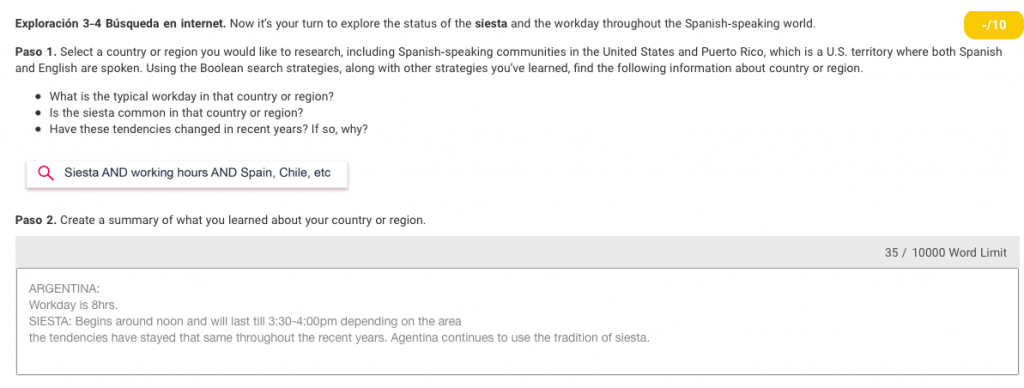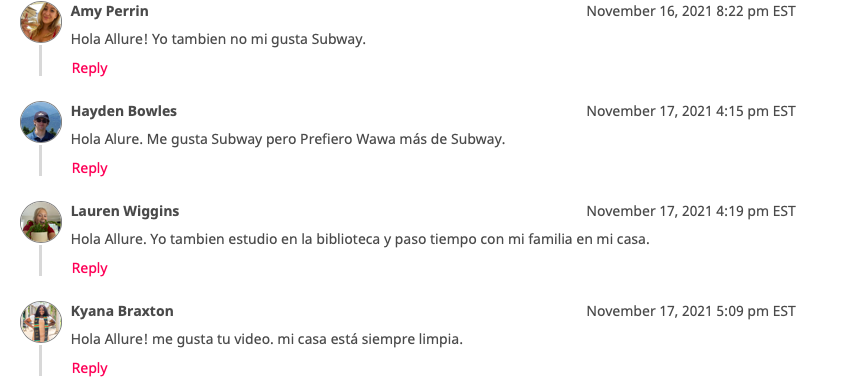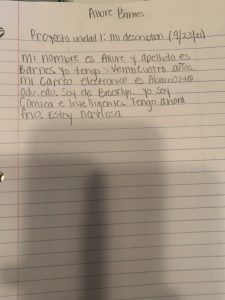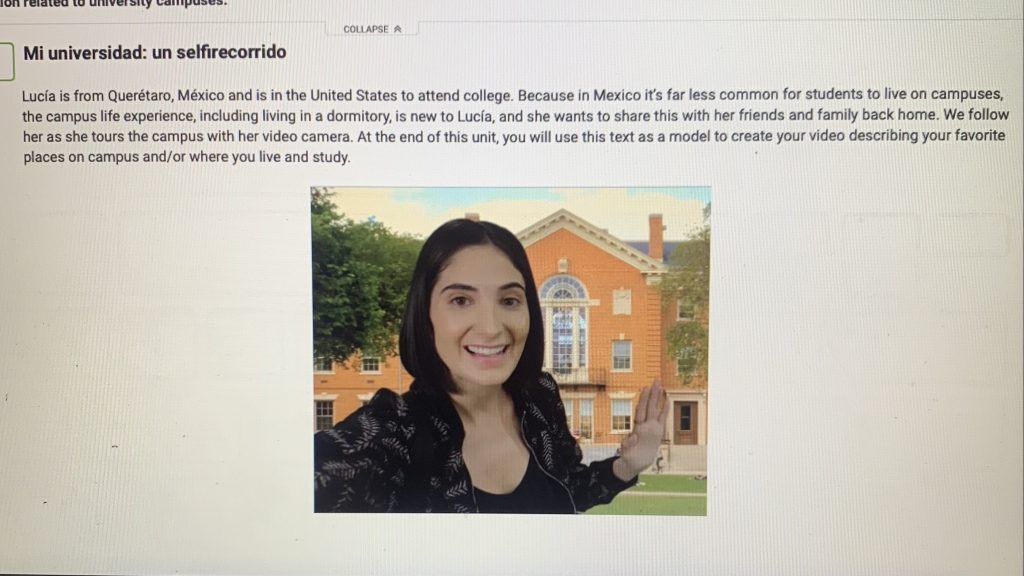Interpretive, Interpersonal, and Presentational Modes of Communication
Exploring Culture
Some products and practices that helped me gain an understanding of cultural perspectives are how naps are incorporated into daily routines and the lifestyle of college students in Spanish speaking countries.
These practices challenge my worldview because before finding out about how naps are incorporated into daily life in Spanish speaking countries was that naps are for free time. It’s nice that as a community they can agree on things that benefit them all. For example, in Argentina naps are taken during the early afternoon and after lunch. Some businesses will close down during “siesta” or jobs will give their employees a 15 minute break to take a nap. They say that naps increase productivity. I never really thought about life as a college student in another country. Knowing that students that go to college in Spanish speaking countries have no dorms and that the government controls what you study. When finding out these practices of Spanish culture It made me think about how privileged I am to be born in America.

Engaging in Communities
In English, give a brief description of the value of, and importance of, engaging in your immediate community and the global community.
Reflect on your experience and participation in these communities. Include artifacts such as photos, audio/video clips, etc.
Interpersonal Communication
Some of the assignments that I completed during the semester are partner activities and navigate social media in Spanish. I know I’ve grown with my lingo social profile because when we first started completing the social media profile I didn’t know how to navigate it. What was difficult when creating my lingo profile was how to comment on classmates’ posts. I got the hang of commenting on a classmate’s post by seeing another classmate post with comments. Once I clicked the comments, I was able to see where it said “comment”. The assignments that I excelled at were completing partner assignments. I feel I excelled at that because you have another person to make you think outside the box.

Presentational Speaking
An assignment that I completed was Proyecto 4-2 Comentar. What was challenging to me the most was describing where I was at and using the right verbs and adjectives. I overcame that once I understood the verb conjugations. What I would do differently is to be more confident in what I’m saying and to not think too hard about the assignment that’s due.


Presentational Writing
When writing Proyecto Unidad 1: Mi descripción, we learned how to describe basic information about ourselves. What was difficult when writing the compositions was how to use “E” and “Y” when describing more than one thing. I learned that “Y” becomes “E” when the next word starts with an “I”. What I would do differently is to take my time when thinking about how to translate what I want to say in Spanish. I would also take the time to proofread my compositions to check simple mistakes.

Interpretive Listening
An interpretive listening activity that I completed this semester is the Conversar 1-15B Conversación simulada. Some of the things I heard during the assignment was how to tell someone about myself. What was challenging for me is when to use transition words to carry my next sentence. I also learned how to talk about my major. What was challenging about describing my major was how to say major in Spanish. We got to see a student take a tour of her university and tell us about her campus and what she likes and doesn’t like about it.

Interpretive Reading
Some interpretive communication activities that I’ve read in and out of class this semester are when we would take turns reading compositions and text from the textbook. What was challenging to me was how to pronounce my words. I overcame this difficulty by slowing down my words and reading them out. With each assignment I feel like I’ve grown by understanding what the instructions are asking for.
